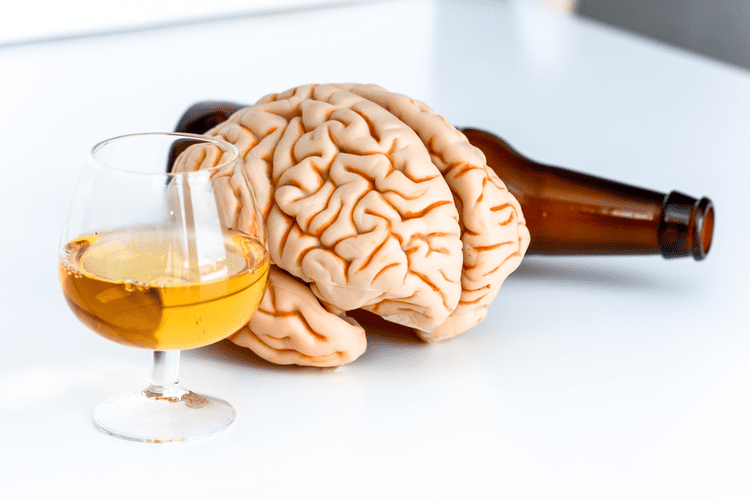Content
Some people who have narcissistic tendencies do misuse alcohol. It’s possible to have a narcissistic personality disorder as well as an alcohol use disorder . The traits that come along with narcissistic personality disorder can make it difficult to cope. It is important to practice self-care, recognize that their behavior is not your fault and set boundaries to prevent falling victim to manipulative tactics. Alcohol abuse can cause people to develop narcissistic personality disorder as they become defensive about their substance use and whether they have an addiction. Drinking when you have been diagnosed with narcissistic personality disorder can be additionally dangerous.

Content is reviewed before publication and upon substantial updates. How can you help a person with alcohol use disorder , formally called alcoholism? Similarly, people with dual diagnosis can manage their https://ecosoberhouse.com/ symptoms with appropriate treatment. To treat dual diagnosis, people will receive treatment options for both NPD and AUD. Individuals can discuss how NPD and AUD can affect the other with their doctor.
How to Find an Effective Alcohol Rehab for Narcissists
Many alcoholics are empathic and kind, i.e. not narcissistic, when they’re sober. A narcissist’s behavior is consistent throughout their life, whether or not they’re using alcohol. Typically, alcohol withdrawal symptoms happen for heavier drinkers. Alcohol withdrawal can begin within hours of ending a drinking session. But Narcissistic Personality Disorder has specific signs, symptoms, and treatments.
How do you make a narcissist miserable?
- Ignore them.
- Act indifferent toward them.
- Tell them how happy you are.
- Speak in facts, not emotions.
- Set boundaries and stick to them.
- Tell them no.
- Give them an ultimatum for commitment.
- Push them to answer to authority.
Underneath their arrogance or demands of special treatment is a person who relies on the outside world to validate their sense of self. Drugs and alcohol ultimately become coping mechanisms for their unhappy internal state. A lot of addicted narcissists will claim that their drug of choice enhances their lives or personalities, and they’ll swear that they have control over their addiction. And, since they’re narcissists and they believe they’re immune to such normal human issues as addiction or alcoholism, they aren’t concerned with any related health issues. The two types of narcissism were measured using the Five Factor Narcissism Inventory .40 Participants rated their agreement to 148 statements about themselves on a five-point scale. An overall mean score of narcissism was calculated for the two subscales (i.e., grandiose and vulnerable narcissism). Internal consistency in the current study was alpha of .84 for the grandiose narcissism subscale and .79 for the vulnerable narcissism subscale.
Narcissistic Personality Disorder Traits
Diagnosing and treating co-occurring disorders can be difficult. This is true with alcoholism and narcissistic personality disorder, which have overlapping symptoms. Lastly, don’t be afraid to set boundaries and find support in family and friends. Remember that a person with both alcoholic and narcissistic traits may need to get professional help before they can have a healthy relationship with you again. For a person to recover fully, they’ll generally need treatment that addresses both disorders.
Codependence and Narcissism Are Two Ends of a Continuum – Psychology Today
Codependence and Narcissism Are Two Ends of a Continuum.
Posted: Fri, 11 Feb 2022 08:00:00 GMT [source]
These plans incorporate various therapies and aftercare programs that address both alcohol abuse and a mental health condition. Recognize that people narcissism and alcoholism with personality disorders and addictions hold self-serving and distorted views of themselves and others that they are resistant to give up.
Narcissists vs. Alcoholics
Learn about the noticeable symptoms and how to get help for oneself or a loved one. According to a 2018 article, due to the common co-occurrence of personality disorders and AUD, it is important that substance misuse services screen for personality disorders and vice versa. Dr. Scot Thomas received his medical degree from the University of California, San Diego School of Medicine. In his post-graduate clinical work, Dr. Thomas later applied the tenets he learned to help guide his therapeutic approach with many patients in need of substance treatment. An individual may be an alcoholic narcissist, someone who has NPD and then develops alcohol addiction and dependence. But their alcoholic personality leads them to act in ways that are similar to a narcissist.
- Whether seeking support for yourself or trying to get a loved one into rehab, an appreciation of the co-occurring disorders is vital.
- Lastly, vulnerable narcissism was a significant predictor of problem expectations.
- By doing this, you avoid answering any intrusive questions or responding to any negative comments without starting an argument and escalating the conversation.
- Others are viewed as either enabling their drinking or as potential threats to their freedom to drink.
The first thing we should do is define what an alcoholic is and what a narcissist is. An alcoholic can be defined as someone who has an addiction to alcohol, while a narcissist can be defined as someone who has an inflated sense of their own importance. There is a lot of debate about whether alcoholics are narcissists. Some say that alcoholics are narcissists and others say that they are not. There is no clear answer to this question as there are many different opinions on the subject. Hill E. The role of narcissism in health-risk and health-protective behaviors.
Being a Narcissist When Drunk
Narcissists can become alcoholics and alcoholics can be particularly narcissistic when drunk. Narcissism is a personality disorder and mental health condition. Approximately 1 in 200 people have it, although the rate of prevalence is higher among drinkers. It is characterized by showing a lack of empathy towards others and being very self-centered. Someone who has an alcohol use disorder but is not a narcissist may lie or use addiction as an excuse, but they ultimately don’t feel like their addiction makes them any more special than anyone else.
- While different, they can co-occur and they share similarities.
- When the conditions are co-occurring, any treatment must take this into consideration too.
- Treating onlyalcohol use disorderand not narcissistic personality disorder — or vice versa — will increase the chances of future substance abuse and the need for more professional treatment.
- Angela Atkinson is a certified trauma counselor and the author of more than 20 books on narcissism, narcissistic abuse recovery, and related topics.
They hurt their loved ones and let down people who trust them. They fail to keep promises, fulfill obligations, or pay attention to what other people need. At the expense of other people, they focus on themselves and on getting the next drink. Someone can be narcissistic or have a formal diagnosis of NPD without ever becoming alcoholic. However, research and clinical observations show that narcissists are susceptible to developing a drinking problem. If you’re struggling to recover from narcissistic abuse, you might be interested in learning about Neuro-Linguistic Programming or NLP. It’s a surprisingly simple yet highly effective treatment for symptoms of complex post-traumatic stress disorder (C-PTSD)…
At Step 2 the types of narcissism, vulnerable and grandiose, were simultaneously entered into the model. If you feel like you or someone you care about might be showing signs of being an alcoholic narcissist, there is hope, and there is no reason to be ashamed. Alcoholism is a very serious condition, and without treatment, it can lead to homelessness, failed relationships, and even early death. A comprehensive recovery plan is the safest and most effective way to overcome a co-occurring disorder.
What are the most obvious signs of a narcissist?
- need for excessive admiration.
- sense of entitlement.
- interpersonally exploitative behavior.
- lack of empathy.
- envy of others or a belief that others are envious of them.
- demonstration of arrogant and haughty behaviors or attitudes.
